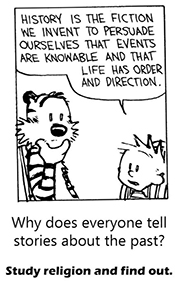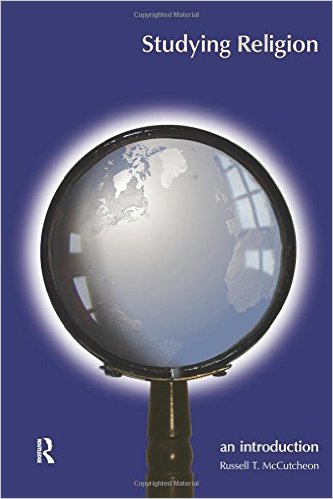REL 100.002
Introduction to Religious Studies
T, R | 11:00-12:15
GP 208
Download Syllabus
View Online Syllabus
This Core Humanities course examines the practical implications of classification by studying how we define religion and the effects of those definitions. It asks whether classifications tells us more about the classifier than the thing being classified. It applies these skills to US Supreme Court cases on religion as well as how origins tales may be more self-implicating than we first imagined. This course is an ideal introduction to the academic study of religion as carried out in a public university as well as an introduction to the wide relevance of the Humanities. HU INB
Russell T. McCutcheon
- Office hours:
By appointment
- (205) 310-7546
- russell.mccutcheon@ua.edu

Readings

McCutcheon, Russell
Studying Religion: An Introduction
Routledge, 2008
978-1845530129
Resources
Current Events
What counts as “news”?
Who gets to decide — and how?
#ClassificationMatters

Read the December 23, 2015 article.
“Religious liberty” in the news
(NPR August 23, 2016)
“When we try to parse out what is religion…”
More Resources
The following resources and readings may be used in the course.
The Story of the Blind Monks and the Elephant
Nix v. Hedden, 149 US 304 (1893)
The Life and Times of Tim: What is a Restaurant?
Horace Miner, “Body Ritual Among the Nacirema” (PDF)
The First Amendment to the U.S. Constitution (passed by Congress 1789/ratified by Congress 1791)
The Lemon Test (1971); the court decision from which this legal test is derived can be found here.
Judgment Day: Intelligent Design on Trial (watch this episode from PBS’s Nova)
Kitzmiller v. Dover Area School District, PA, Case No. 04cv2688 (PDF)
Related Test Cases: Is It Religion?
"Religion" in the News: Two Case Studies
Watch the full video
(Beware of coarse language)
Hear/Read the full story
Although this course is not o
n Islam (REL 236 is on that topic), the above two examples (one from 2014 and the other from the summer of 2016) will set the stage for the course, inasmuch as they both make evident that what gets to be defined as religion in the US today — and thus, what secures the benefits of being classified as a religion (in terms of exemptions, such as from vaccinations, military service, or as itemized in the IRS tax code) — is highly contestable. Studying this contest itself may shed light on issues far larger than what we traditionally conceive as the domain of the academic study of religion.